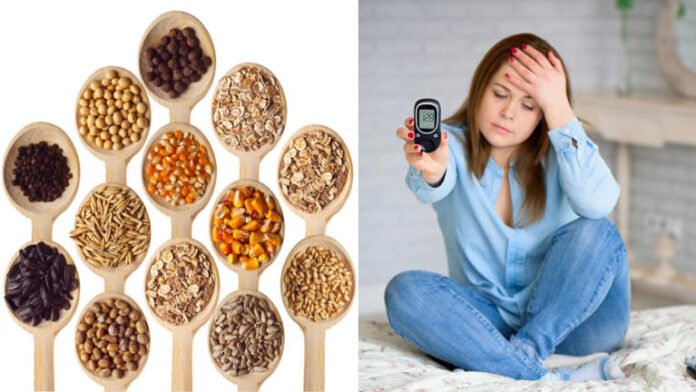Maintaining stable blood sugar levels is crucial for individuals living with diabetes, a chronic condition characterized by high blood sugar levels. While medication and lifestyle changes play key roles in diabetes management, dietary modifications can also significantly impact blood sugar control. Incorporating certain seeds into your diet can be particularly beneficial, as they are rich in nutrients and compounds that help regulate blood sugar levels. In this article, we’ll explore five seeds known for their diabetes management properties and provide tips on incorporating them into your daily routine.
- Flaxseeds: Flaxseeds are a powerhouse of nutrition, packed with fiber, protein, and omega-3 fatty acids. These tiny seeds have been shown to improve insulin sensitivity and reduce blood sugar levels in individuals with type 2 diabetes. Additionally, the soluble fiber in flaxseeds slows down the digestion and absorption of carbohydrates, preventing spikes in blood sugar levels. To reap the benefits of flaxseeds, try adding them to your morning oatmeal, yogurt, or smoothies, or sprinkle them over salads and baked goods.
- Chia Seeds: Chia seeds are another excellent addition to a diabetes-friendly diet due to their high fiber and protein content. When mixed with liquid, chia seeds form a gel-like substance in the stomach, which helps slow down the digestion of carbohydrates and stabilizes blood sugar levels. Additionally, chia seeds are rich in antioxidants, which can help reduce inflammation and lower the risk of complications associated with diabetes. Enjoy chia seeds by adding them to puddings, overnight oats, or homemade energy bars for a nutritious boost.
- Sunflower Seeds: Sunflower seeds are not only delicious but also offer numerous health benefits, including blood sugar regulation. These seeds are a good source of magnesium, a mineral that plays a crucial role in insulin secretion and glucose metabolism. Studies have shown that magnesium deficiency is associated with insulin resistance and impaired glucose tolerance, making sunflower seeds a valuable addition to a diabetic diet. Snack on raw or roasted sunflower seeds, or sprinkle them over salads and stir-fries for added crunch and flavor.
- Pumpkin Seeds: Pumpkin seeds, also known as pepitas, are rich in nutrients that support overall health and well-being, including blood sugar control. They are high in magnesium, zinc, and antioxidants, all of which play important roles in regulating blood sugar levels and reducing inflammation. Additionally, pumpkin seeds contain phytosterols, plant compounds that have been shown to improve insulin sensitivity and lower cholesterol levels. Enjoy pumpkin seeds as a snack on their own, or add them to trail mixes, granola, or homemade bread for a nutritious boost.
- Sesame Seeds: Sesame seeds are a versatile ingredient commonly used in Asian cuisine and baking. They are rich in fiber, protein, and healthy fats, making them a valuable addition to a diabetes-friendly diet. Sesame seeds contain lignans, plant compounds that have been shown to improve insulin sensitivity and reduce blood sugar levels. Additionally, the magnesium and calcium found in sesame seeds help support bone health and prevent complications associated with diabetes. Incorporate sesame seeds into your diet by sprinkling them over salads, stir-fries, or roasted vegetables, or use them to garnish soups and stews.
In addition to incorporating these seeds into your diet, here are some additional tips for managing blood sugar levels and promoting overall health:
- Monitor your blood sugar regularly: Keep track of your blood sugar levels using a glucose meter and work with your healthcare provider to establish target ranges for fasting and postprandial (after-meal) blood sugar levels.
- Stay hydrated: Drink plenty of water throughout the day to stay hydrated and help regulate blood sugar levels. Limit sugary beverages and opt for water, herbal tea, or sparkling water instead.
- Exercise regularly: Engage in regular physical activity, such as walking, cycling, or swimming, to help improve insulin sensitivity and lower blood sugar levels. Aim for at least 150 minutes of moderate-intensity exercise per week, or as recommended by your healthcare provider.
- Eat a balanced diet: Focus on consuming a variety of nutrient-rich foods, including fruits, vegetables, whole grains, lean proteins, and healthy fats. Limit processed foods, sugary snacks, and high-carbohydrate meals that can cause spikes in blood sugar levels.
By incorporating these seeds into your diet and following these diabetes management tips, you can take proactive steps towards better blood sugar control and improved overall health. Remember to consult with your healthcare provider or a registered dietitian before making any significant changes to your diet or exercise routine, especially if you have diabetes or other health conditions. With dedication and consistency, you can empower yourself to live well with diabetes and enjoy a fulfilling and active lifestyle.

